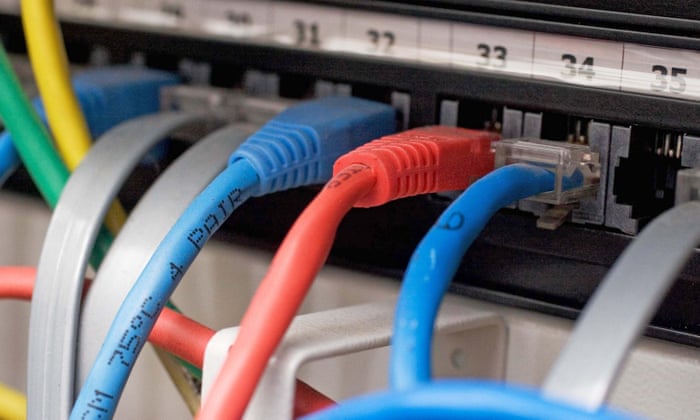The development of new/digital media means the audience is more powerful in terms of consumption and production. Discuss the arguments for and against this view.
It can be argued that the development of new and digital
media has made audiences more powerful, which is evident in the decline of
newspapers. Due to this development it meant that audiences can access articles
online rather than buying the actual newspaper, which can have some negative
effects on the newspaper industry. This made newspapers less valuable and
causing the nature of it to change from providing news to providing opinions/ false information (such as
click bait) to attract readers. But the newspaper industry who suffered the
most are local newspapers. Only 49% of the people who consume news do it
because they want to know what is going on in their local area, which means
that more than 50% don’t care about local news which means that local
newspapers such as the Ealing gazette has suffered. New and digital media can
be blamed because people who use newspapers to find out news in general is
decline, which means that bigger industries can afford to put the distribution
of their newspapers on apps or online (the people who use apps/internet for the
news increased by 11% in one year), which means local newspapers who don't have
the budget would be hit harder. This means that the survival of these
industries are significantly influenced by them utilising new and digital media
to meet the needs of the audiences, in order for them to consume their
products.
However, they can still maintain the quality of news in the
newspaper to create the trust that internet news doesn't have, eg .google news
just draws together sources from all around the world making it unreliable as a
result printed newspapers can use that to their advantage. Furthermore they can
increase the prices of their newspapers to compensate for the advertisement
they lost to the internet. However the newspaper industry should really
consider ways to work with new and digital media as it is going to continue to
grow which may have an even bigger effect on them, the most attractive thing
about news on the internet is citizen journalism and people being able to
communicate their ideas, and so the newspaper industry should really consider
that. Citizen journalism has allowed more powerful in the consumption and
production of news. Most of the sources such as footage of a crime is mostly
produced by the public, suggesting that they contribute to the production of
news.
Furthermore, the development in new and digital media has
had many impacts on both producers and consumer in the last 20 years. The
developments include social networking sites, which allow people to communicate
worldwide getting different sides of an argument/opinion despite cultural
differences and language barriers. An example of this is Malala Yousafzai's
twitter which has 244K followers around the world and is the discussion ground
for children's rights to education in under developing countries. This suggests
that the social media is a way of accessing opinions as well as getting
involved with political debates/ pop culture in the long run the involvement of
audience’s opinion can be the turning point to social change, showing how new
and digital media made audiences more powerful. Similarly Obama used NDM
(social networking sites)to campaign during his election, this allowed him to
communicate directly to people of America so he knew exactly how to please and
get votes of them, and the reaction of the audiences may lead to him getting
the votes or not.
Marxists believe that media owners control ideas because
they control the information people are allowed to access. They believe that
the media is consciously biased; they provide members of society with a worldwide
view or ideologies that explicitly favour the rich and powerful. This is
evident in newspaper articles that mostly support right wing political parties
such as the conservatives. 20 years ago people relied on newspapers that were
mostly owned by the middleclass for opinions, this means that most of the
articles were political biased towards left wing as a result people had a
limited range of opinions. The increase use of new and digital media changed
that. Newspapers being streamed online allowed people to get involved with news
as well as commenting their opinions without being afraid to stand out as the
internet is desensitised, as a result people have access to a greater variety
of views and values. The desensitisation of the internet however has led to the
number of suicide rates due to cyber bulling to triple in 2013 according to
‘good magazine’ suggesting that having access to variety of views and values
doesn’t always lead to positive effects but can be damaging to society
especially the younger generation.
Meanwhile, this desensitisation and citizen journalism has
suggests that there isn’t really an empowerment of the media, but the
audiences/ members of society are changing the ways of the media supporting purist
beliefs. Purists believe that Choice is involved not just access to a range of
different media and views but also to the status of consumers, for pluralist
the consumer is the most important factor, this is evident by the use of social
media and theses advertisement targeting everyone regardless of age and class,
as a result supporting the pluriast ideologies. Digital media is new technology
that has an impact on the media. These can be things such as apps, social
media, online news, email and many more. Due to this, audiences have access to
a greater variety of views and values. The internet is mainly, widely used by
the younger generation as they have more access to it e.g. in schools or on
their phones. However, is becoming more accessible for adults too. For example,
18.3 million households in the UK (70%) had internet access in 2009 compared to
2 million in 2006 and has risen to 87% in 2013, suggesting access to the
internet is increasing significantly, each year. In addition, the younger
generation use the internet to look up news, information, listen to music,
watch movies, play games etc. The
internet can have positive and negative effects on society both economically
and intellectually, meanwhile it is thought of as” the most important medium of
the centrum “by Biggs and Burke suggesting that the internet is key in our
society today.
In conclusion the development in new and digital media has allowed audiences to become more powerful. This means that they can use the internet to do almost anything. Meanwhile the new and digital media doesn’t always lead to a positive views and values, it allows allot of young people to access things they shouldn’t see such as pornography or to get to attached to pop culture influencing them negatively, and according to the hypodermic needle theory new and digital media as a massive influence on society today. Though this can be argued my a marxasits its a way of creating divergent and keeping people of lower class feel like they have control and access. As a result the extent to which the audiences are powerful is questioned.
In conclusion the development in new and digital media has allowed audiences to become more powerful. This means that they can use the internet to do almost anything. Meanwhile the new and digital media doesn’t always lead to a positive views and values, it allows allot of young people to access things they shouldn’t see such as pornography or to get to attached to pop culture influencing them negatively, and according to the hypodermic needle theory new and digital media as a massive influence on society today. Though this can be argued my a marxasits its a way of creating divergent and keeping people of lower class feel like they have control and access. As a result the extent to which the audiences are powerful is questioned.








